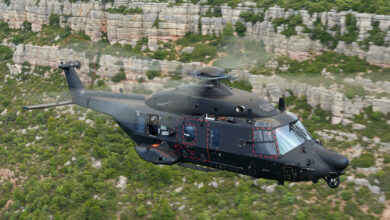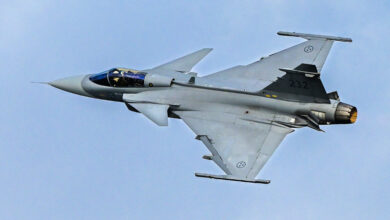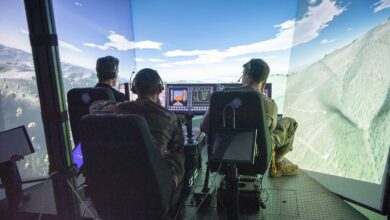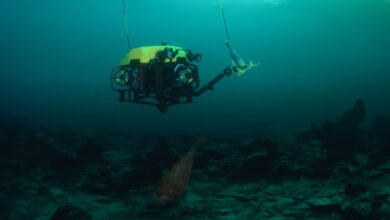Dutch and Danish frigates to deploy in support of French maritime mission in the Persian Gulf
The France-led maritime mission to counter Iran in the Strait of Hormuz is set to officially start at the end of the month, the French defense ministry said on Thursday.
The European-led Maritime Awareness mission in the Strait Of Hormuz (EMASOH) is intended to prevent conflicts in the critical entrance to the Persian Gulf, the world’s busiest shipping waterway.
France’s light stealth frigate Courbet, already attached to Combined Task Force 150, will be dispatched for the mission, the ministry said in its weekly update published on January 23.
The Netherlands will deploy a frigate at the beginning of February and Denmark plans to deploy a relief frigate at the beginning of the autumn.
Full operational capability is expected to be announced in late February.
Last week the French foreign ministry said that eight European Union nations had given their support for the new naval patrol. EMASOH will be based in the United Arab Emirates, where France already has a permanent military presence.
In September, Denmark’s Prime Minister Mette Frederiksen said her government was looking into the possibility of a Danish naval contribution to an international maritime effort in the Strait of Hormuz.
France says EMASOH “is not aimed at any particular state, but seeks to ensure the stability of the region by defining an objective and autonomous mapping of the regional security situation and preserving freedom of navigation.”
But the new mission comes after months of tensions in the Persian Gulf that saw attacks on foreign tankers and cargo ships in the strategically important waters. The U.S. and its European allies have blamed Iran for the attacks, an allegation Tehran denies.
EMASOH is separate from a new U.S.-led maritime Operation Sentinel with similar aims. Although the United Kingdom has already signed on to the American mission based in Bahrain, most European states have stayed away for fear of undermining political efforts to rescue the 2015 nuclear deal with Iran.
The French mission will include air and naval assets, and “consists of surveillance of civil and military air and sea activity for the benefit of civil navigation,” the defense ministry said.
In November, French Armed Forces Minister Florence Parly said a new mission to monitor Gulf waters would be run by 10 to 15 staff members deployed at the French naval base in Abu Dhabi. The ministry said Thursday that the staff would include “around 15 people from different European countries” under French command at the launch.












